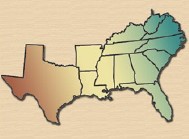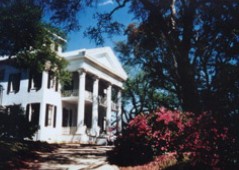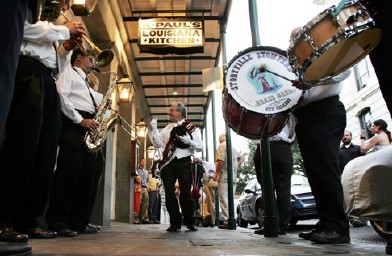
THE SOUTH
American Corner | 2013-01-31 14:03

Like New England, the South was first settled by English Protestants. There was also an influx of French Huguenots, particularly into South Carolina, and, of course, there were many French settlers in Louisiana. But whereas New Englanders tended to stress their differences from the old country, Southerners tended to emulate the English. Even so, Southerners were prominent among the leaders of the American Revolution,and four of America’s first five presidents were Virginians.

The Tennessee State Capitol is located in downtown Nashville, which was founded in 1779 by settlers from North Carolina.
In contrast to the rocky states of New England and the fertile valleys of the Mid-Atlantic where family farms flourished, the southern states relied heavily on an agriculture organized into large farms or plantations that grew labor-intensive crops, such as cotton and tobacco for markets in the North and across the Atlantic. To supply this need, plantation owners relied on slaves brought from Africa. But slavery became a contentious issue, dividing North and South. To Northerners it was immoral; to Southerners it was integral to their way of life. In 1861, 11 southern states left the Union intending to form a separate nation, the Confederate States of America. This separation led to the Civil War, the Confederacy’s defeat, and the end of slavery. The scars left by the war took many decades to heal.
The Storyville Stompers Brass Band performs outside K-Paul’s Louisiana Kitchen in the French Quarter in New Orleans, Louisiana, in October 2005, amid signs of recovery following the devastation of Hurricane Katrina.
Performers from the Penny Pavilion take the stage during the opening ceremonies of the 2004 Spoleto Festival USA in Charleston, South Carolina.

Stanton Hall, near Natchez, Mississippi, is an example of the hundreds of plantation homes that have survived throughout the Old South, remnants of a way of life idealized in the novel Gone With the Wind.
Over time, however, Southerners looked past these divisions, and in the late 20th century a new regional pride expressed itself under the banner of “the New South.” Again, the South gained influence in national politics: Since 1976, the only president not from the South was Ronald Reagan. Jimmy Carter is from Georgia. George Bush and his son George W. are long-time residents of Texas, and Bill Clinton is from Arkansas. Also, the South has drawn international events, such as the annual Spoleto Festival in Charleston, South Carolina, and the 1996 summer Olympic Games in Atlanta, Georgia.
Today the South has evolved into a region rich in manufacturing, banking, and transportation. High-rise buildings crowd the skylines of cities throughout the region. Owing to its mild weather, the South has also become a magnet for retirees from other U.S. regions and from Canada. Whether retired or simply looking for a good quality of life, newcomers to these “Sunbelt” states are finding a modern mix of business opportunity and the style and flavor traditional to the South.

Stanton Hall, near Natchez, Mississippi, is an example of the hundreds of plantation homes that have survived throughout the Old South, remnants of a way of life idealized in the novel Gone With the Wind.
The literary wealth of the South is legendary, particularly in the 20th century, including William Faulkner’s novels about life in Mississippi, the plays of Tennessee Williams, and the short stories of Flannery O’Connor.
Regional foods include southern fried chicken, grits, barbecue, and the French and Creole cuisine of Louisiana.
Share this page



















